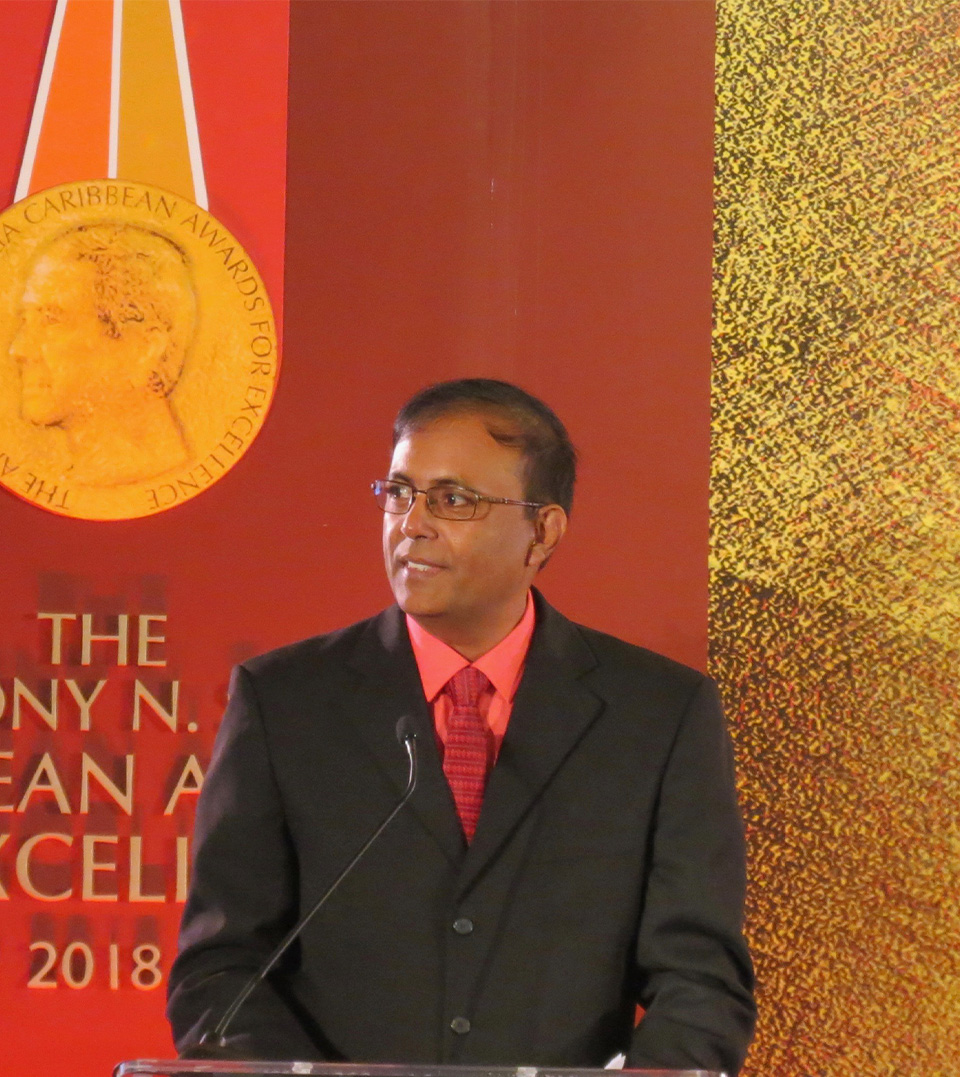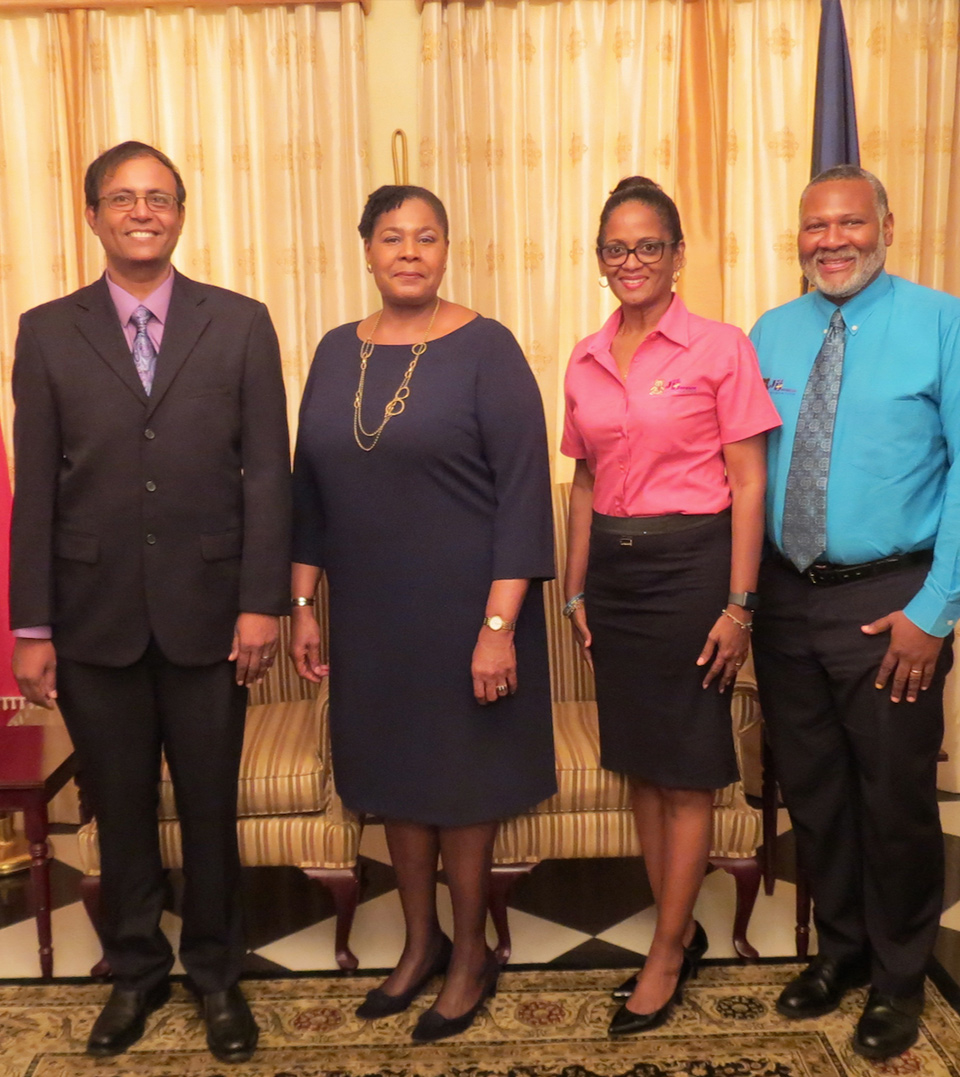Dr Adesh Ramsubhag is a Trinidadian scientist whose career is in the area of Microbiology and Biotechnology. He has contributed significantly to science and technology in Trinidad and Tobago and the region, specifically with respect to the development of microbiology as a distinct sub-discipline of biology, and in research aimed at addressing problems impacting humans and the environment.

Dr. Adesh Ramsubhag
He is a senior lecturer in Microbiology and Plant Pathology and Head of the Life Sciences Department at the University of the West Indies, St. Augustine. Since joining that department in December 2001, he has produced research which has affected the commercial meat industry, agriculture, forestry, fisheries, animal husbandry, environmental pollution (including oil spill clean ups) and the potential production of novel medical antibiotics. He has also contributed to establishing microbiology as a discipline in its own right at the Faculty of Science and Technology, UWI, St Augustine.
His work on microorganisms is producing exciting results that, if supported by further research, can lead to the development of pharmaceuticals, an export-driven industry estimated at a current value of US$ 1 trillion. The research findings so far include that the chemical compounds produced by many indigenous organisms from Trinidad have unique antibiotic and other valuable qualities for the pharmaceuticals. The diversity of these organisms is great, making it even more likely that home-grown research here can lead to more astounding results.


Dr. Ramsubhag is credited with establishing a viable research programme in Microbiology at UWI, St Augustine, where he had earned (1992) a BSc in Agriculture and (1998) a PhD in Microbiology. He has shared his expertise across several departments of the University, including Civil & Environmental Engineering, Food Production, Medical Sciences, Chemistry and Veterinary Sciences, among others. He initially worked at the Caribbean Industrial Research Institute (CARIRI) for two- and-a-half years where he applied conventional microbiological skills to assist industries and state agencies with a range of food, water, air quality testing services, as well as with product development, optimization of processes for reduced contamination and training of staff.
In his present position as an academic, in addition to research, he is a dedicated teacher. So far, in his nearly 20-year career as a research scientist and lecturer, five candidates he has supervised have graduated with PhDs and eight more are working towards completion. Nine students have completed MPhil degrees and six are in the process of doing so. Also, 17 students have completed their Master of Science degrees in Management of Tropical Environments, Crop Protection or Environmental Engineering. More importantly he has stimulated and motivated many generations of undergraduate students who would have passed through him to follow his path in microbiology.
To date, his publication list includes 40 articles in peer-reviewed international journals in additional to 12 peer-reviewed book chapters, conference proceedings and abstracts. Several articles are under review or in preparation for submission to journals, in addition to one for which a patent application is being prepared.

